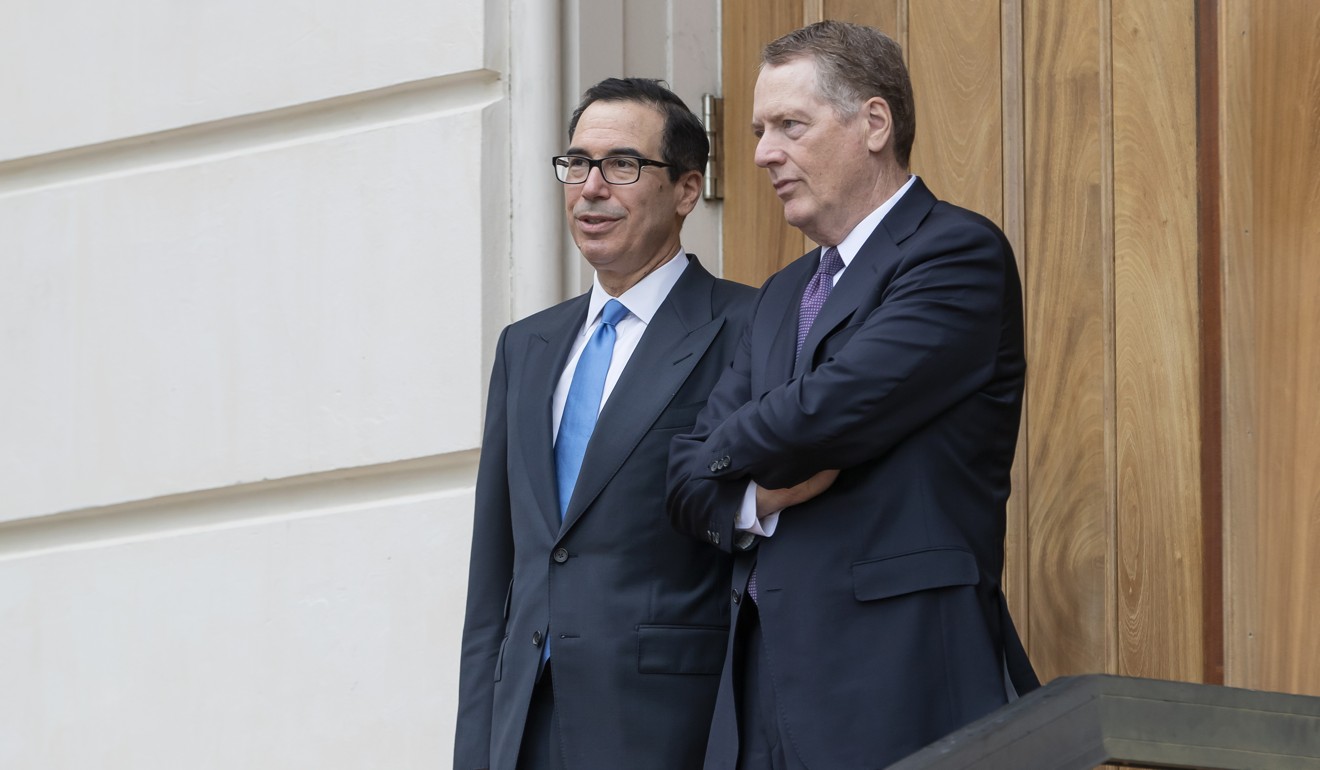
Who’s coming when? Steven Mnuchin’s trade talks travel plan is news to Beijing
- China ‘unaware’ of any such arrangements, commerce ministry says after US treasury secretary tells Congressional hearing he will be heading back to Beijing soon
- Negotiations damaged by the US ‘unilaterally and continuously’ escalating the conflict, ministry spokesman says

China is unaware of any plans for US negotiators to visit Beijing for a new round of trade talks, its commerce ministry said on Thursday, suggesting there has been no let up in tensions between the world’s two largest economies.
“China is not aware of the United States’ trip plan,” ministry spokesman Gao Feng told a press conference.
“Both sides had candid and constructive communications in the last round of talks, but very regretfully the US unilaterally and continuously escalated the trade conflict, which led to grave damage to the discussions.”
Gao’s comments came after US Treasury Secretary Steven Mnuchin told a Congressional hearing on Wednesday that he expected to visit Beijing soon to continue the trade talks.

The latest discussions in Washington were “constructive” but a lot of work remained to be done before the two sides could reach a deal, he said.
“My expectation is we will most likely go to Beijing at some point in the near future to continue those discussions and I think it’s President [Donald] Trump’s expectation to meet with President Xi [Jinping] at the G20 at the end of June.”
There have been suggestions that talks could be held in Beijing before the end of the month to give negotiators the chance to settle their differences before the new tariff increases take effect on June 1.
Mnuchin is the joint head of the United States’ negotiating team with US Trade Representative Robert Lighthizer, a China hawk who has insisted any deal must include an enforcement mechanism to ensure Beijing sticks to any commitments it makes.
Tensions between the two sides escalated last week when Trump made good on his threat to more than double the tariff rate on US$200 billion worth of Chinese imports to 25 per cent after accusing Beijing of backtracking on pledges it had made in earlier rounds of talks. China hit back by imposing the same level of tariffs on US$60 billion of US products.
Gao also repeated Beijing’s threat that it would apply further countermeasures if the US insisted on levying tariffs on the remaining US$300 billion worth of goods it imports from China.
Chen Long, an economist with Gavekal Dragnomics in Beijing, said the two sides still had a number of “sticky issues” to discuss, including the timing and process for removing tariffs already imposed, and agreeing what products and how many of them China should buy to help improve its trade balance with the US.
“The latest tariffs add an extra layer of complexity to any future negotiations,” Chen said, adding that when it came to reaching an agreement, the US negotiators were at the mercy of the president.
“Trump has the final say [on what the US will accept],” he said.
The uncertainty now surrounding the trade talks could be the straw that broke the camel’s back for some US firms operating in China, industry insiders said.
“Trade diplomacy is an exercise in patience, persistence and consistency – it’s all about saving face,” said James Zimmerman, a partner in the Beijing office of international law firm Perkins Coie and a former chairman of the American Chamber of Commerce in China.
“For the US to achieve good concessions from the Chinese, it’s about having a strategy that is effective. Bullying and bluster never works.”
Wang Yong, an international relations professor at Peking University, said the US had not given proper weight to China’s concerns but had only demanded it push ahead with reforms and amend its laws.
“The text of the deal does not show equality and undermines China’s sovereignty,” he said.
Additional reporting by Amanda Lee